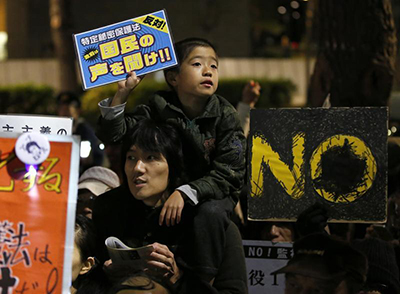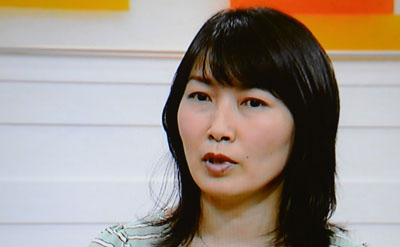
Abe administration throttles media independence, journalists and UN say
Late in 2015, the Japanese government asked David Kaye, the U.N. special rapporteur on the right to freedom of opinion and expression, to reschedule a visit planned for December. At the time, some news outlets speculated that the administration of Prime Minister Shinzo Abe, under criticism for rising threats to free expression, was trying to…

Japan’s state secrets law, a minefield for journalists
On October 14, as Japan prepared to mark Newspaper Week–an event set up to promote the public right to know–Prime Minister Shinzo Abe’s cabinet publicly announced guidelines on how the country’s security law, which was passed in December 2013, is to be implemented. This date will be remembered as the point at which the public’s…
Journalists in Japan face threats 3 years after Fukushima
At the end of last month, an evacuation order declared during the 2011 Fukushima-Daiichi nuclear plant power plant meltdown was lifted for residents of a small town in Fukushima Prefecture, the first time an area so close to the site was declared suitable for habitation. Yet, three years after Earthquake Tōhoku killed 15,000 people and triggered…
Bill to stifle flow of information poised to pass in Japan
New York, December 3, 2013–The Committee to Protect Journalists is gravely concerned by a new state secrets bill before the Japanese parliament, which, if passed, would broaden the government’s power to determine which information can be kept secret.

Yamamoto’s death reflects Japan’s media reach, duty
My colleagues and I were saddened to learn of the death of Mika Yamamoto, a Japan Press video and photo journalist who was killed while covering clashes in Aleppo, Syria, on Monday. The moment was all the more poignant because of the similarities with two other Japanese journalist fatalities: Kenji Nagai of APF News in…
Journalists detained, released in Vietnam clampdown
Bangkok, July 11, 2011–Authorities must stop harassing journalists reporting on public demonstrations in Vietnam, the Committee to Protect Journalists said today. On Sunday, police detained and interrogated three reporters who were covering anti-China protests in Hanoi where around a dozen demonstrators were arrested.